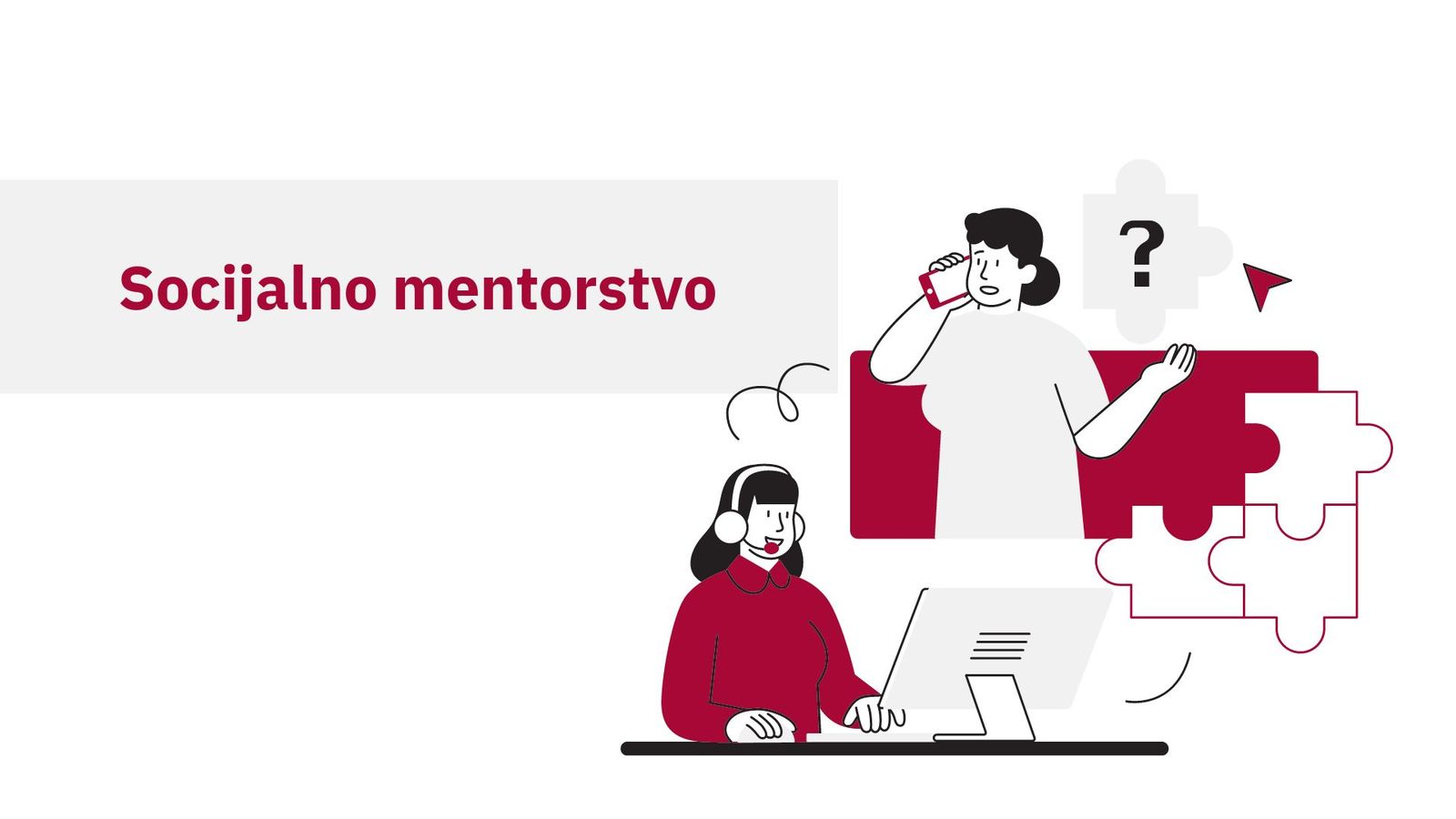Over 250 employees in the social care system were licensed to conduct an innovative work model focused on individuals at risk of social exclusion.
Without employment, there is no income and social stability, and there is no quality of life that implies active participation in society. In contrast to inactive and unemployed persons, the employed are at a lower risk of economic poverty and social exclusion.
In order to make it easier for the unemployed to achieve economic and social well-being, the Institute for Labor Market Development, together with their partners developed and implemented a new social mentoring service that was successfully introduced in Croatia in 2022. It is an innovative model of work in the social care system that is aimed at individuals at risk of social exclusion.
Mentoring and activation until integration
Croatia is becoming a country with a high share of long-term unemployment, as shown by the data of the Croatian Employment Service, according to which more than 60,000 long-term unemployed persons were recorded in 2021. However, a new chapter was turned in 2022, when the Social Welfare Act introduced a new social service called social mentoring. The Institute for Labor Market Development and the Croatian Association of Social Workers piloted the social mentoring model in the period from 2018 to 2020 through the project "m-Aktiv - mentoring and activation to integration". With this project, the Institute for Labor Market Development provided the Ministry with the basis for the introduction of social mentoring as a new social service guaranteed by the Law, which enabled the strengthening of social and life skills and the integration and activation of less employable groups on the labor market.
Over 250 employees are licensed
Social mentoring as a new model of professional work with unemployed able-bodied users in the social welfare system is a service that enables integration and encourages change in unfavourable life situations and an objective assessment of one's own capacities. The emphasis in the process is on the relationship between two key persons - the social mentor and the mentored person. The mentored person is at risk or is already in a socially marginalized position. The user is an unemployed, able-bodied, or partially able-bodied person, a beneficiary of the guaranteed minimum benefit at the Institute for Social Work. The mentor encourages and guides the mentored person through a collaborative, continuous, and trusting relationship. During social mentoring, the mapping of the local community is carried out to create a better support network. The beneficiary and the social mentor explore available resources, from volunteer opportunities to professional development. The expected duration of social mentoring is six to eight months, and the process takes place in five stages, from the initial contact and building a relationship with a potential user, through the definition of goals and an action plan, to the evaluation of the process and achieved results.
At the beginning of 2022, the Institute for Labor Market Development and the Croatian Association of Social Workers implemented a project to train social mentors, through which they licensed over 250 employees of the Institute for Social Work and the Croatian Employment Institute throughout Croatia. In this way, future social mentors acquired the necessary competencies for implementing the new social service and working with beneficiaries according to the given model.
Career counseling as part of social mentoring
In the context of reducing unemployment, it is important to distinguish the phase of advancement. Namely, in order for a person to progress, it is necessary to carry out career counseling, which is a key part of social mentoring regarding the activation of individuals in the labor market.
Career counseling is focused on support and empowerment and can be conducted individually or in groups, in person, or at a distance. Labor market experts provide information and tools for assessment and self-assessment, counseling interviews, career development training, observation or probationary programs, and job search programs. The goal of every career counselor is to shorten the period of unemployment in order to maintain the work potential of the mentored person. Of course, along with this comes the preservation of employability and psychological status, maintaining work motivation, psychological well-being, and competitiveness of the individual in terms of the necessary knowledge, skills, and abilities. It is also important to emphasize that the mentored person learns to recognize and achieve his goals in the context of the labor market and receives real support in realizing his potential.
Mentoring of 30,000 users is planned
In the next few years, social mentoring is planned for 30,000 beneficiaries from the social welfare system to reduce the gap in the supply and demand of labor in the labor market.
The Institute for Labor Market Development (IRTR) stood out as a leader in the development of the social mentoring model. Our story began with the project "m-Aktiv - mentoring and activation until integration" and was rounded off with the introduction of social mentoring into the legal regulations. In this way, we have consolidated our activities regarding the development of the labor market and human resources in Croatia, especially in the development and piloting of innovative methods for improving the employability of marginalized groups. - said Antonio Matković, head of the department for cooperation with the public sector from the Institute for Labor Market Development, which is part of the SELECTIO Group.



